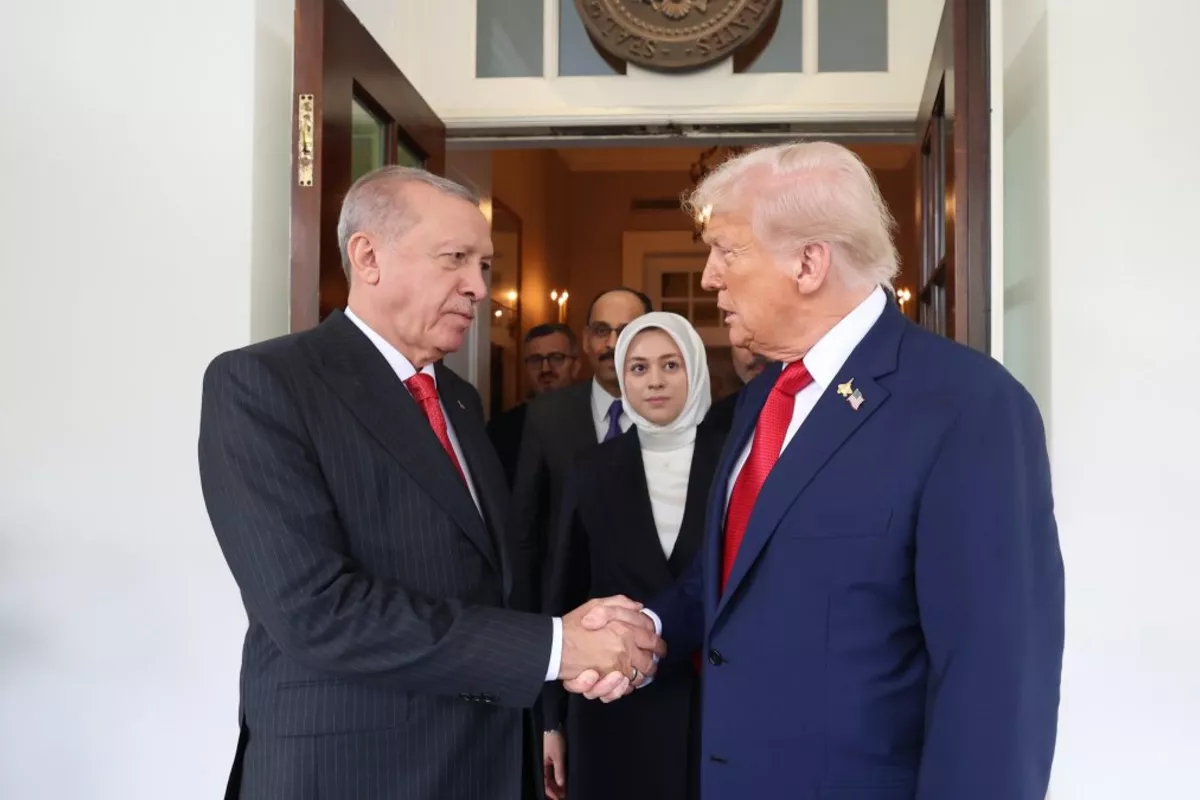
AA Photo
The Erdoğan-Trump relationship could play a significant role in shaping Balkan stability through strategic influence and diplomacy.
When U.S. President Donald Trump reached over to move a chair closer for President Recep Tayyip Erdoğan during their White House encounter, it was more than a simple gesture of courtesy. It was respect. And in today’s shifting geopolitical landscape, symbols matter, The Caspian Post reports citing Daily Sabah.
While many regional leaders have struggled to secure closed-door time with the U.S. president or his administration, Erdoğan’s ability to sit across from Trump and to walk away with warmth, not just words, signals a level of access that could reverberate well beyond Washington and Ankara. I think, among other things, that Trump respects Erdoğan because he is not easily influenced and has strong opinions and values about both regional and global issues. But because of his experience, Erdoğan, unlike Trump, is no stranger to turbulent and challenging times, dangerous regions and fragile balances.
Erdoğan has long presented himself as a defender of the sovereignty of all nations and the man who always fights for the rights of Muslims, most prominently in his support for recognition of Palestinian statehood. His meeting with Trump was reportedly centered on Gaza, where peace, reconstruction and governance are now urgent, alongside bilateral matters. Yet the implications go further.
I want to focus on how this close relationship can benefit the Balkans, a region rarely at the top of Washington’s concerns, but that is always very high on the Turkish agenda, and where Ankara plays a strong role alongside the U.S. and the EU. The Balkans could indirectly benefit from Erdoğan’s close ties to Trump’s administration, still seen by many in the region as transactional and inexperienced in Southeast Europe.
For Sarajevo, Pristina and even Belgrade, this access to Trump matters. Trump’s foreign policy instincts often favor deal-making over strategy, which in the Balkans could embolden leaders with dangerous ideas about redrawing borders or questioning fragile sovereignties. Having Erdoğan close to Trump at such a moment ensures that a leader who knows the region’s complexity and who has already built personal rapport with President Aleksandar Vucic in Serbia and Bosnia’s Serb entity leader, Milorad Dodik, can act as both mediator and protector. Ankara has positioned itself as a defender of Bosniak interests while also convening multiparty talks. That duality gives Erdoğan leverage and with leverage comes responsibility.
At the United Nations General Assembly this month, Balkan leaders also sought American attention. Vucic met senior U.S. officials in New York; Kosovo and Bosnia’s leaders participated in a series of bilateral and multilateral conversations with American diplomats. These engagements suggest Washington remains engaged, but they are not a substitute for a sustained strategy. Into this vacuum steps Erdoğan, a Muslim leader who can speak to Trump with authority and comfort.
The timing is delicate. The war in Ukraine has entered yet another uncertain stage, with renewed talk of cease-fires but persistent risks of escalation. Europe’s focus is drawn eastward and the Balkans, with its unresolved ethnic tensions, disputes and dangerous nationalist currents, risks sliding down the list of priorities. That distraction creates space for instability. If left unattended, local actors may be tempted to test boundaries, from secessionist rhetoric in Bosnia to hardline posturing between Serbia and Kosovo.
Here, Erdoğan’s alignment with Washington could deliver dividends: preserving borders, deterring secessionist impulses and reinforcing recognition of Kosovo’s political reality. A U.S.-Türkiye understanding, however pragmatic, could give Sarajevo and Pristina stronger backing at a time when the EU remains hesitant and divided. The optics also matter: in communities across the Balkans, seeing a Muslim leader welcomed in Washington carries symbolic reassurance that Muslim rights are not forgotten.
Based on what we have seen so far, Trump’s worldview can shift quickly, especially when personal loyalties or perceived deals are at stake. Influence, after all, is not the same as control.
Erdoğan’s access to Trump provides the Balkans with a channel of communication and protection they would otherwise lack. If Erdoğan uses this access to champion sovereignty, protect pluralism, and ensure that borders remain intact, the region could see a stabilizing effect. If not, the door remains open for transactional bargains that undermine fragile peace. Policymakers in Sarajevo, Pristina, Brussels, and, yes, even Belgrade should treat this rapprochement as an opportunity to secure Washington’s attention. That means coordinated diplomacy, pressing for firm U.S. red lines against border changes and working with Ankara to channel its influence responsibly.
The Erdoğan-Trump handshake, symbolized first by a simple movement of a chair, offers more than theater. It is a potential axis of influence, one that could help stabilize the Balkans, another of the EU’s hot spots tha
Share on social media